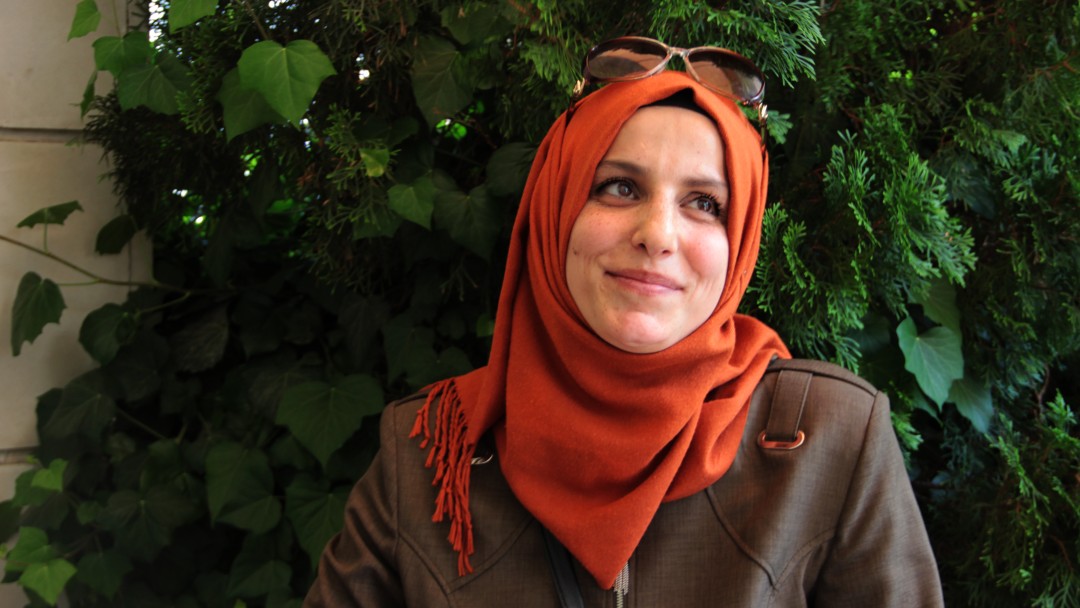News from 2018-06-20 / KfW Development Bank
Health care for Syrian refugees in Turkey
KfW finances professional development for doctors and nurses from Syria

"No-one could help us in Syria," recounts Wesam. Her daughter died in the rubble of a house that had been hit by bombs. Last year, Wesam, her husband and their four remaining children fled Deir ez-Zor in eastern Syria for Turkey. Ever since then, the family has struggled along with various temporary jobs. Wesam's husband is an engineer but cannot find any work in his field. Now, Wesam is set to provide them with a regular income: she is one of the 350 care assistants receiving training from the World Health Organization (WHO). The qualification is being financed by KfW on behalf of the German Federal Government with a total of EUR 21.2 million. In addition to the professional training programme, KfW is also funding operations at seven health stations for refugees.
The programme is also providing training for 800 Syrian doctors and nurses, including a large number of women. They are learning about aspects like prescribing medicine in Turkey and referring patients. Wesam and her fellow care assistants are visiting elderly and disabled refugees at home to issue advice. "Lots of people tried to help my daughter when she was trapped but there was nothing anyone could do. Now, I would like to do my bit for others," explains the Syrian.
Turkey has absorbed 3.5 million refugees from Syria, and therefore currently accommodates the largest number of refugees in the world. Many of the refugees are traumatised and require medical assistance. Hospitals and health stations are therefore working at their limit. This is where the professional development programme comes in: with their training, Syrian doctors and nurses can easily start work, all they need is some additional understanding of how things work in Turkey. Assistants like Wesam are responsible for extra home visits, for example, to make sure patients are taking their medicine correctly. "The Turkish government and the people here have been so helpful," says Wesam in appreciation. "However, it has been hard to find work so far, which is why this job is so important to me."
Syrian doctors, nurses and care assistants like Wesam are officially employed by the Turkish health care system in order to relieve some of the strain. This gives them a regular income. The training for Syrian doctors and nurses and their subsequent employment is also supported by the EU. The funds from the German Federal Government are being used to expand training and support complementary measures, such as training and employment for care assistants.

Share page
To share the content of this page with your network, click on one of the icons below.
Note on data protection: When you share content, your personal data is transferred to the selected network.
Data protection
Alternatively, you can also copy the short link: https://www.kfw-entwicklungsbank.de/s/enzBWrMC.Bz3A
Copy link Link copied